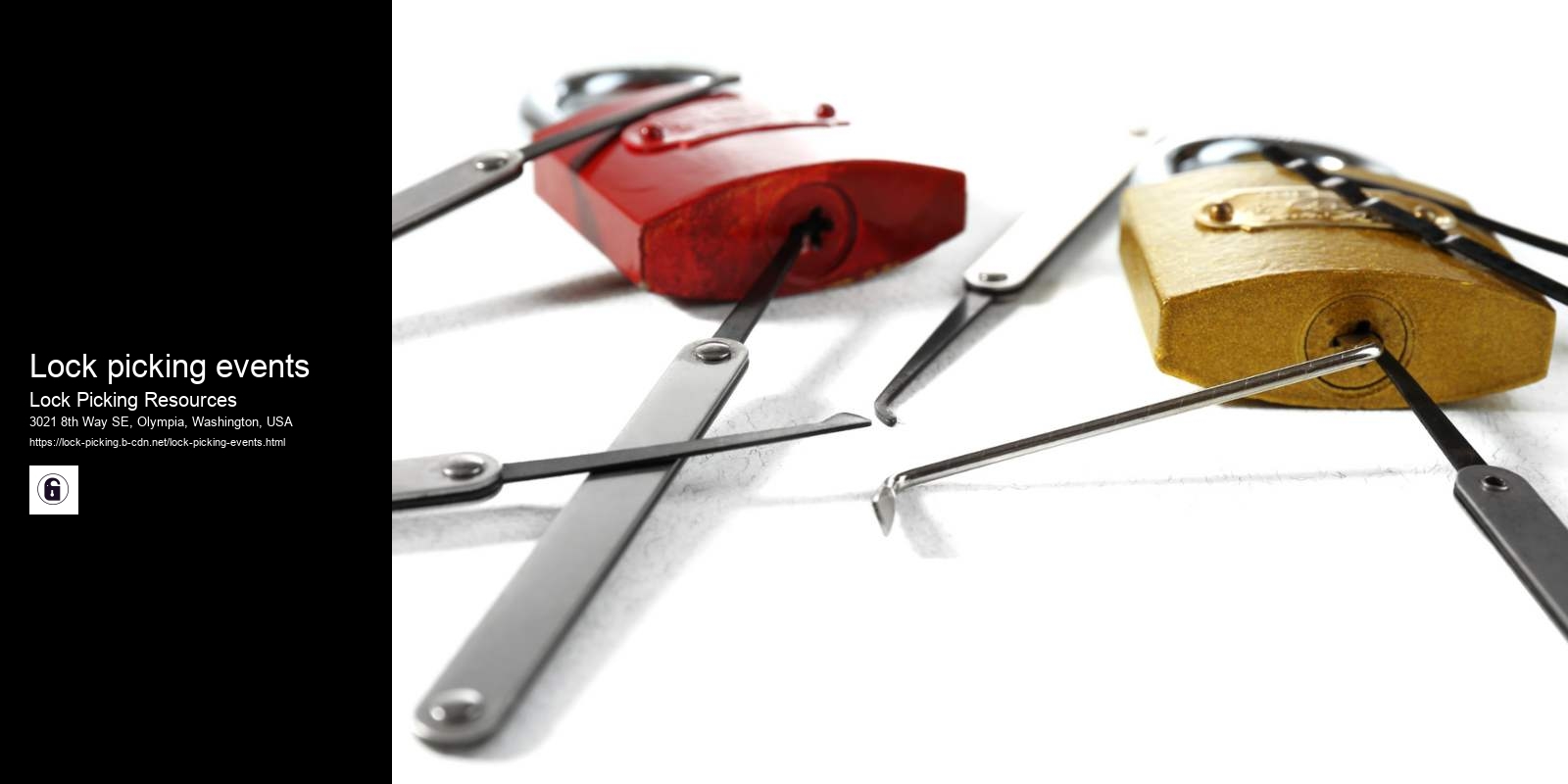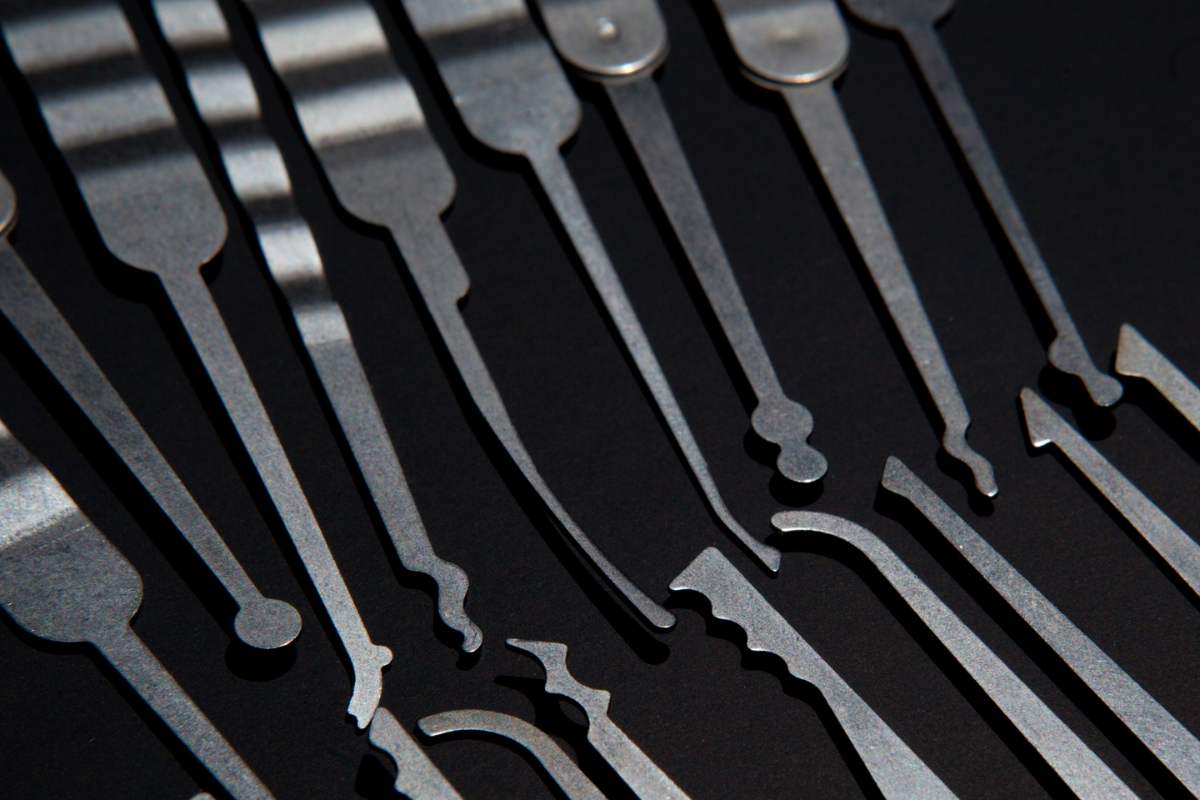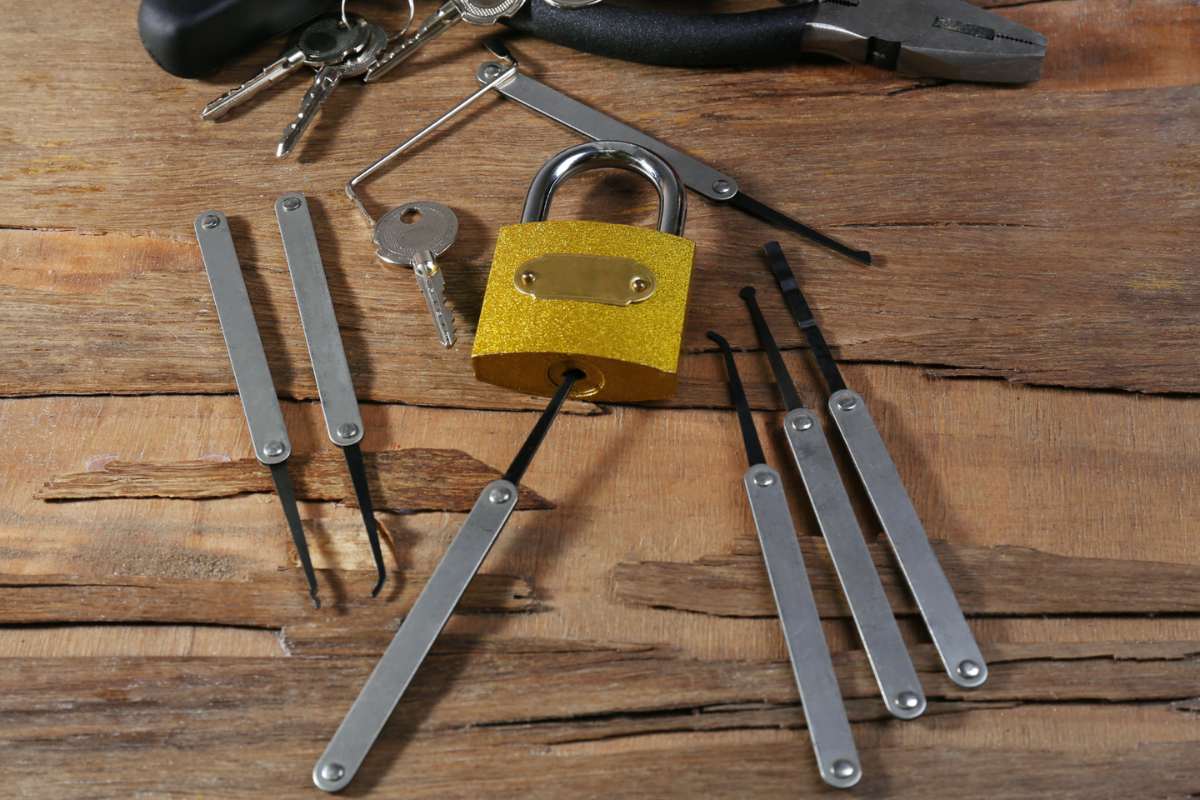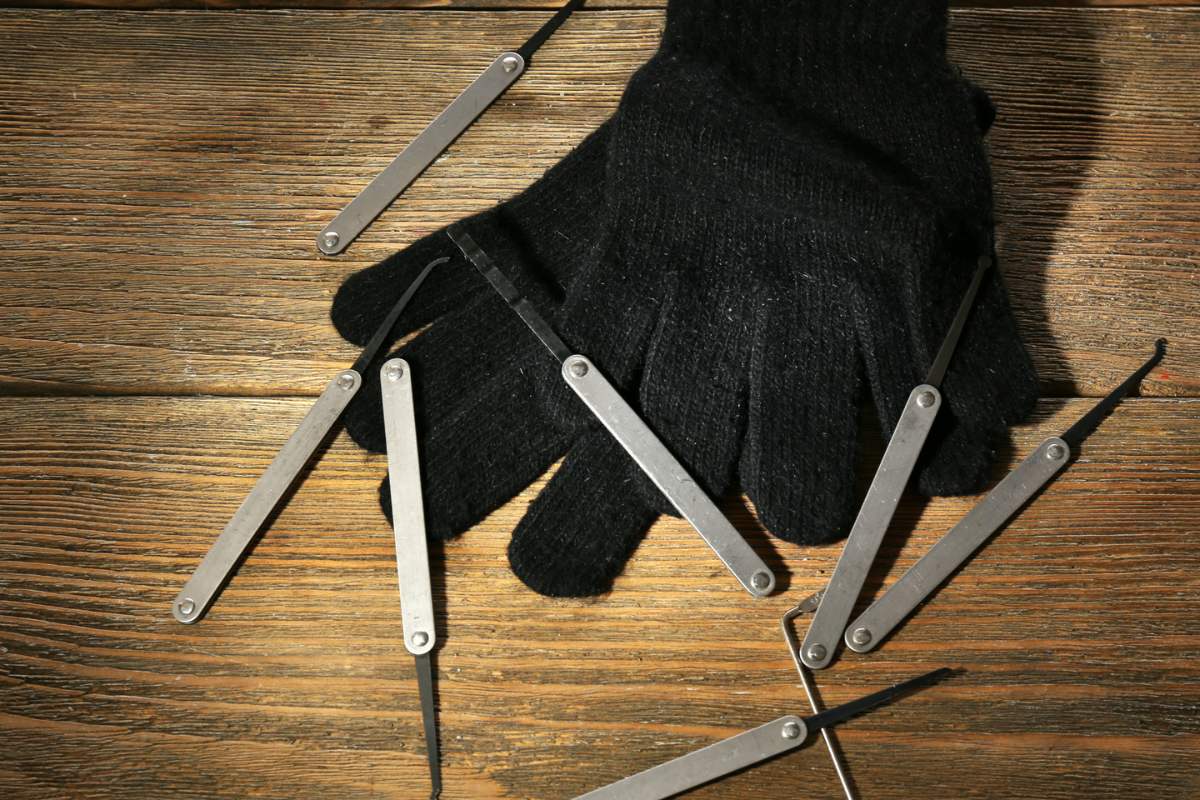What are some tips for avoiding breaking lockpicks?
While bogota rake picks are relatively easy to use and can be very effective, they are not always the best choice for every situation. In some cases, a more precise and controlled approach may be needed, which requires using other types of lock picking tools, such as a hook pick or a diamond pick.
A tension wrench, also known as a torque wrench or a torsion wrench, is a common tool used in lock picking. It is a thin, flat piece of metal, typically L-shaped, that is inserted into the bottom of a lock's keyway and used to apply rotational force to the lock cylinder.
The purpose of a tension wrench is to create tension or torque on the lock's cylinder, holding the pins in place and allowing the lock picker to manipulate the individual pins with a pick tool. By applying the correct amount of tension to the cylinder and manipulating the pins with the pick tool, the lock can be opened without the use of a key.



